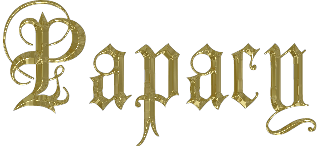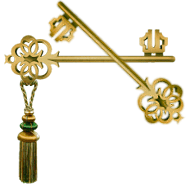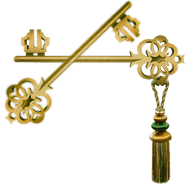

RAPHAEL 1511 Nov. 26 1503 to Feb. 21, 1513 Pope Sixtus IV (1471-84) was Julius' uncle; he faced two serious political problems as a newly elected Pontiff: the authority of the Roman Pontiff in the Papal States was perilous because of the Cesare Borgia's ambitions and the turmoil between France and Spain., which required all his diplomacy. The intrigues and complications caused by the French and Spanish in the Papal States are too in depth for this gallery presentation. Julius was successful. The French eventually retaliated by calling their own council at which they "suspended" the Roman Pontiff, completely illicit and having no authority or force whatsoever. Julius called his own council in Rome. Eventually Julius reasserted papal temporal power in papal territory, which seems redundant and unnecessary to you and me, but given the exigencies and political habits of the times, quite a feat for Julius. Julius II is considered one of the "warrior Popes". His idea of papal responsibility is best summed up in the words he addressed to the artist Michelangelo when the question arose as to what ought to be depicted in his left hand of the statue the sculptor was working on: " ... Give me a sword, for I am no scholar." Perhaps the best known aspect of this Pope is his importance in the arts and architecture of Rome. He took on Bramante, famous for his Christ at the Column piece, as his chief architect, specifically to construct a new basilica of St. Peter's. The old one was razed when the new St. Peter's foundation was laid on April 18, 1506. The painter Raphael executed one of several paintings of the Pontiff in that year, almost identical to the one above. Michelangelo was commissioned to erect a sculptured chapel. All the works connected with the basilica were uncompleted when Julius died; however the Sistine Chapel work of Michelangelo and the frescoes of Raphael were finished. He denounced the sin of simony [bribes for holy things] and even declared that this crime would invalidate the election of anyone tainted with it, including a pontiff, which had an odor of hypocrisy about it because as a cardinal, Julius had committed this sin himself, although he strongly disapproved of it and come to regret the lax morals of the times. That being said, he was not distinguished for his moral authority, nor his spiritual influence as he had the temperament and disposition of a temporal ruler. His pontificate consists of a mixed record. VIEW THIS PAINTING LARGE WITHOUT THE FRAME VIEW ANOTHER VERSION OF THE PONTIFF BY RAPHAEL All graphic accessories on this page copyrighted by Catholic Tradition.  Contact
Us- Contact
Us- TRADITION-----------------GALLERIES----------------------THE PAPACY www.catholictradition.org/Papacy/papal-gallery46.htm |